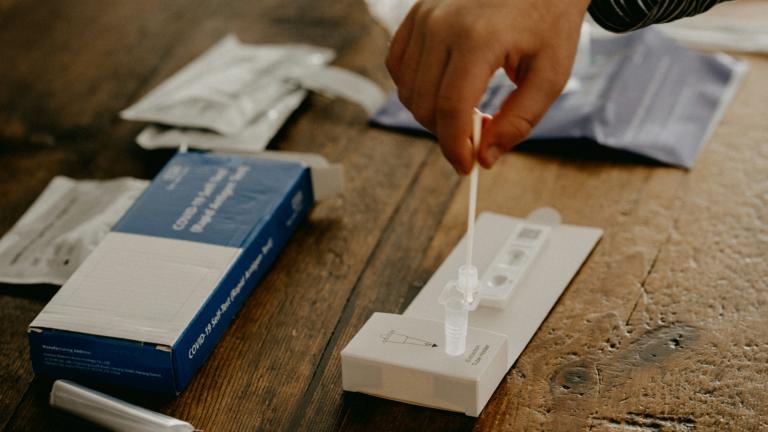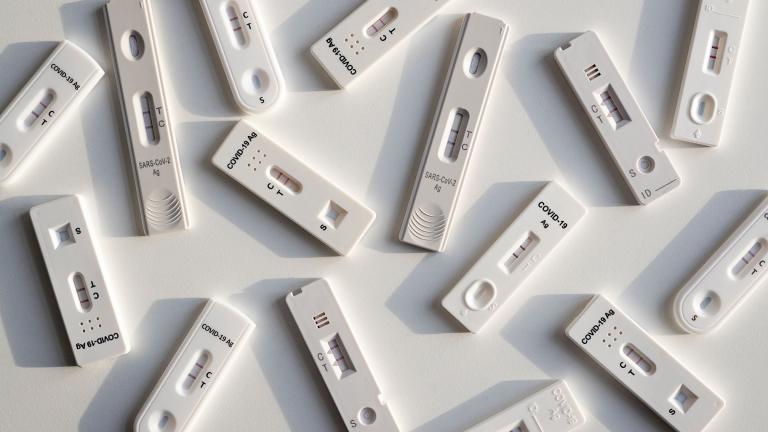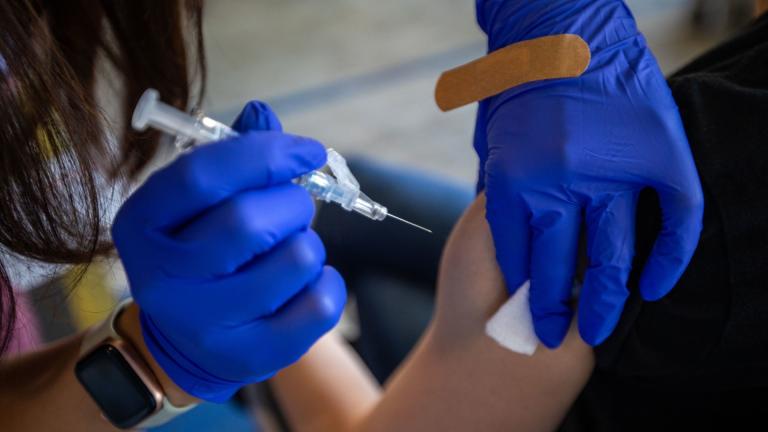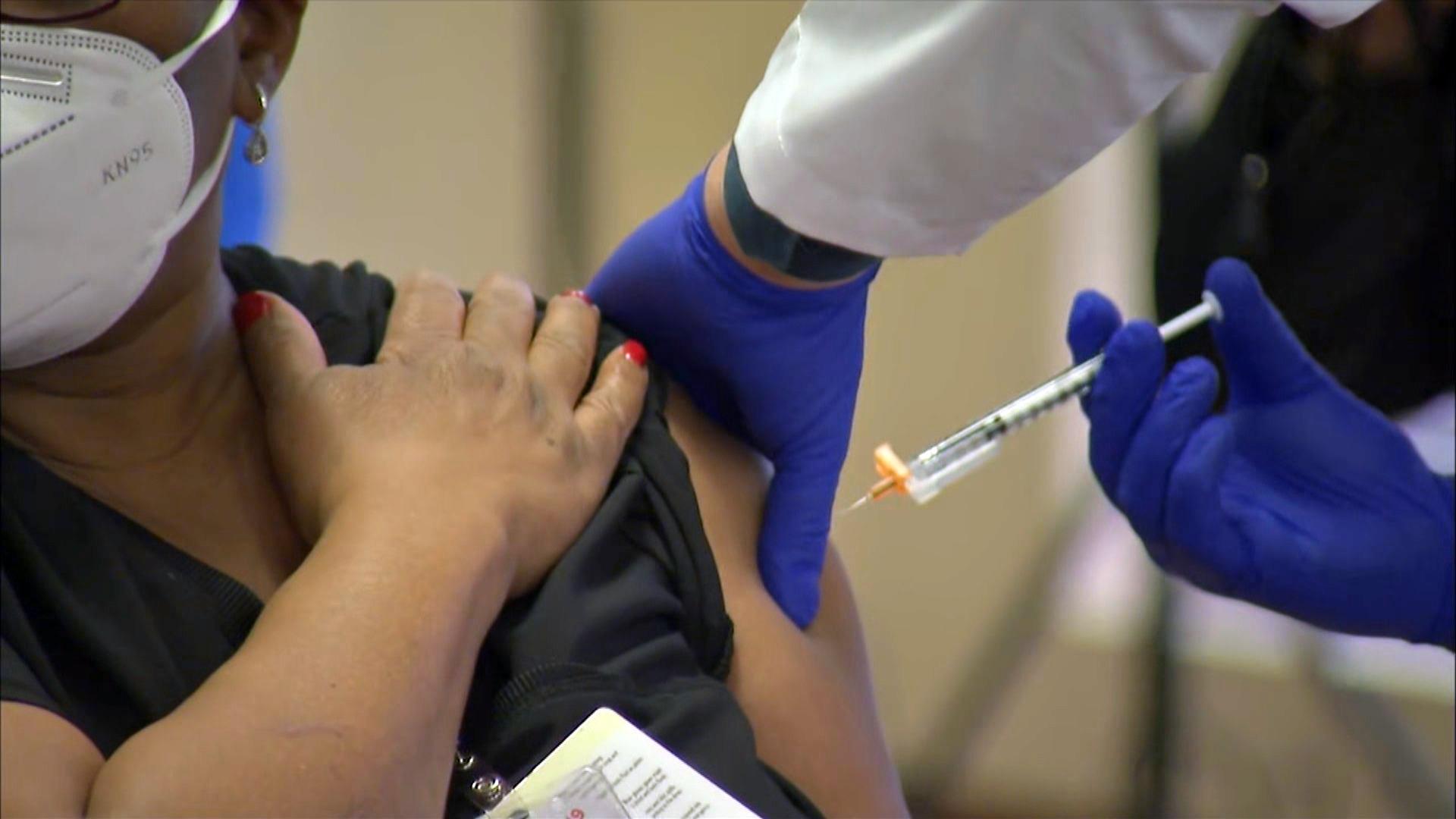 (WTTW News)
(WTTW News)
Nearly 1.6 million Illinois residents have been fully vaccinated against COVID-19, according to the latest Illinois Department of Public Health vaccine data.
But myths and misconceptions about the vaccine are still circulating, including the presence of “breakthrough” infections — defined by IDPH as a COVID-19 infection that occurs 14 days after someone received their final vaccine dose.
So far this year, 169 of the 6,930 COVID-19 deaths in the state — 2.4% — occurred among Illinoisans who were fully vaccinated, and fewer than 650 people who were fully vaccinated were hospitalized due to their coronavirus infection, according to an analysis of state health data.
To put that into perspective: Since the start of the pandemic, Illinois has reported 23,420 virus-related deaths and more than 1.4 million cases, according to state health officials.
To better understand breakthrough cases and address some vaccine myths, we asked Dr. John Segreti, hospital epidemiologist and medical director of infection control and prevention at Rush University Medical Center, to respond to the following statements.
1. Breakthrough cases mean I’ll get COVID-19 either way.
Segreti: If you’ve been vaccinated, you’re 85%-95% less likely than someone who’s not vaccinated to get sick. If you are vaccinated and get infected, you’re not going to get as sick as someone who hasn’t been vaccinated, and you’re less likely to transmit the infection to someone who hasn’t been vaccinated.
2. I’ve already had COVID-19, so I have natural immunity and don’t need to get vaccinated.
Segreti: Maybe that’s true, but we don’t know yet. We do know if you get vaccinated and if you had a natural infection that you’re not going have a severe reaction to the vaccine or more of a reaction to the vaccine. The risk is extremely low and the benefit (of vaccination) is that it definitely boosts whatever antibodies you got from the natural infection. It will make you immune longer.
3. The vaccine is still under investigation.
Segreti: It’s not investigational. It’s not a study. The vaccine has been approved as an emergency use authorization by the FDA, and the FDA wouldn’t have approved an emergency use authorization unless the vaccines were safe and effective. All three of the vaccines available in the U.S. have met those criteria.
4. The COVID-19 vaccine will make me sick.
Segreti: In our experience of immunizing literally over 100,000 people, people can get mild symptoms and very, very few will get severe symptoms. The vast majority of the time (symptoms) are short-lived – 24 to 48 hours.
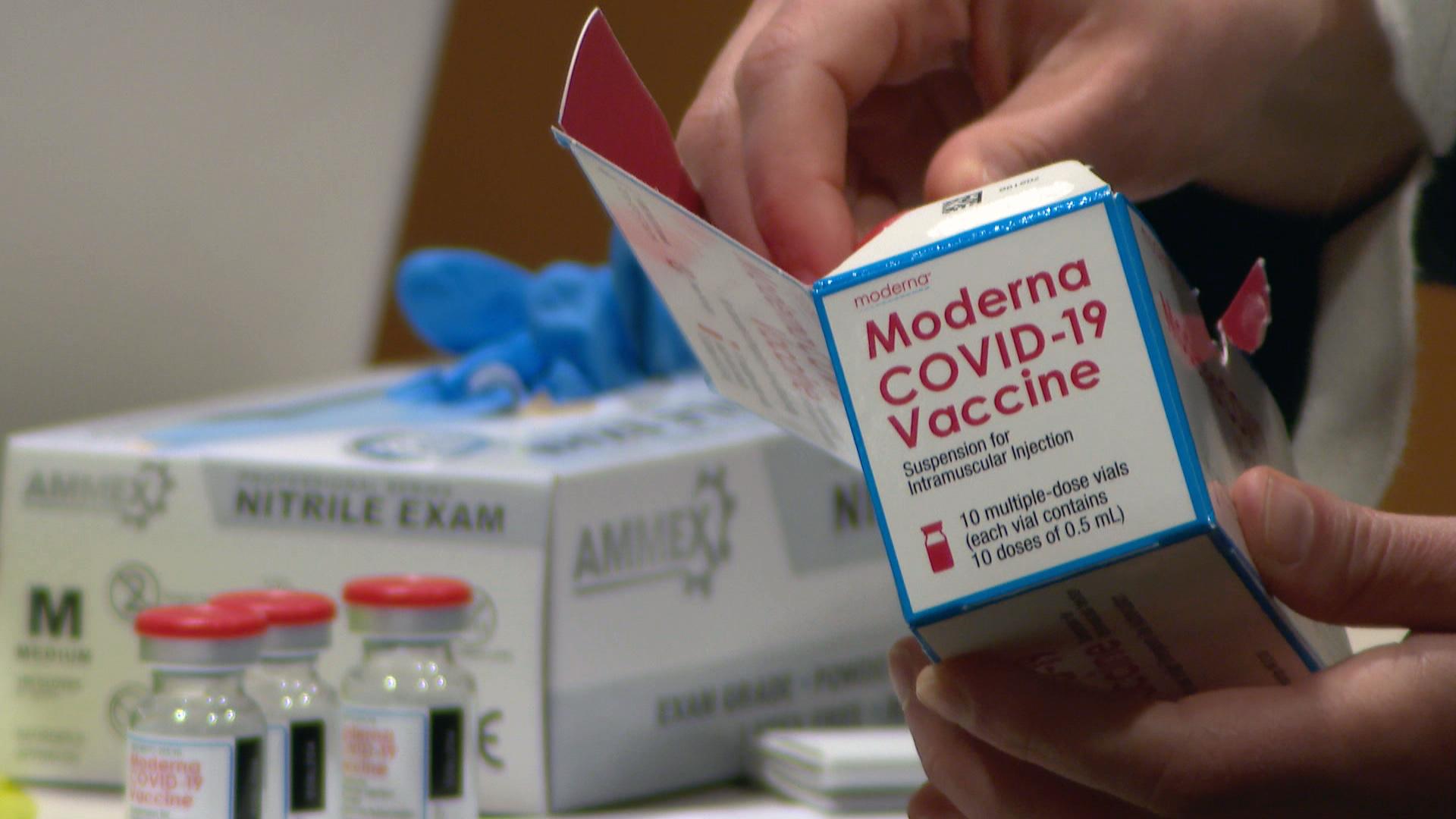 (WTTW News)
(WTTW News)
5. I’m young and healthy. I don’t need to get vaccinated.
Segreti: The vast majority of young people don’t end up in the hospital or dying, but there’s certainly a percentage that will. But more importantly than just the younger people are the other people they’ll have contact with. If you get infected and give it to your parents or grandparents or someone who’s immunosuppressed, they may end up dying. Again, the purpose of the vaccine is to protect the individual but also to protect society, and sometimes, people forget they have a social responsibility as well.
6. The vaccine will affect my fertility and make it harder to get pregnant.
Segreti: There is no evidence or data that shows the vaccine affects fertility in men or women. In fact, if you get COVID-19, there’s a chance it’ll affect fertility, especially in men.
7. The vaccine was developed too quickly. It can’t be safe.
Segreti: The reality is that this technology has been around for a while. The mRNA technology hasn’t been used for vaccines until now, but the technology has been there for a while. The reason the vaccines were developed so quickly was because there was a need and the government and private businesses spent a lot of time and money making sure this would get started.
Vaccines went through phase 1 and 2 trials and very large phase 3 trials with tens of thousands of people in studies that were evaluated for efficacy and safety. The vaccines went through the same rigorous process that other vaccines have. The only difference is the manufacturing was up and running a lot faster because (companies) got approval to start manufacturing doses before it was FDA approved.
8. The COVID-19 vaccine contains a microchip.
Segreti: This is obviously not true, and I don’t know how many times people can repeat that before people will believe that’s untrue.
9. The vaccine will alter my DNA.
Segreti: That’s not true. The mRNA vaccines don’t get into the nucleus and don’t bind to the DNA. The vaccine won’t change your DNA.
Interview has been condensed and edited.
Contact Kristen Thometz: @kristenthometz | (773) 509-5452 | [email protected]



